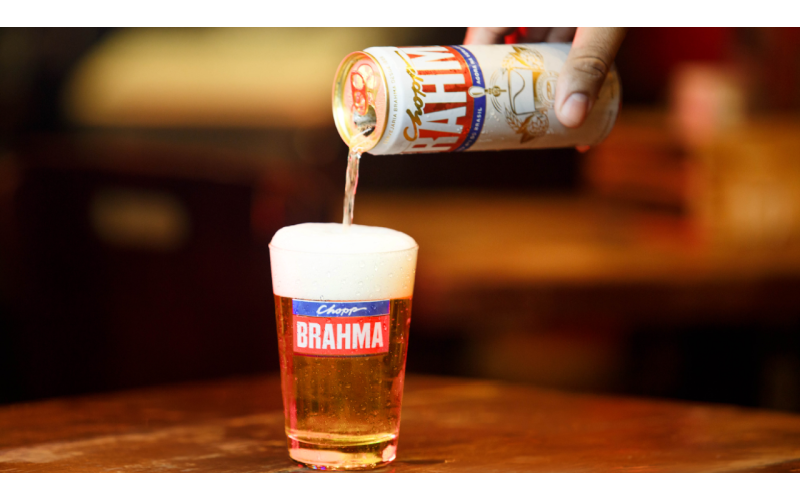The world’s largest technology conference, the Web Summit held recently in Rio de Janeiro (RJ), was the stage chosen for the launch of Brahma beer, in a 350 ml aluminum can.
Consumers at the location where the event was held can enjoy the new beverage in advance, through the convenience offered by the Zé Delivery app. This new commercial offer is expected to reach other cities soon.
In recent years, the multinational Ambev has seen an exponential increase in the sale of draft beer and has listened to consumers’ desire to have the drinking experience at home, in an easy and uncomplicated way.
The company used its technological innovation center located in Rio de Janeiro for the difficult task of finding the perfect recipe for its bottled beer. In order to ensure that all users enjoy the same experience, best production practices in Asia were studied and an in-depth analysis of existing projects was carried out.
For his part, CIT’s Daniel Baumann revealed that it initially took a lot of research and attempts before finally arriving at developing a specific method to achieve optimal results.
“We came up with a microfiltration process that guarantees quality, freshness and a super creamy foam,” confirmed Baumann.
Baumann confirmed.
“This innovation was only possible thanks to the advancement in the platform model that Ambev has been developing in recent years, because, despite being in the can, Brahma draft beer needs to have the entire logistics chain refrigerated to ensure quality and freshness, from the brewery to the consumer’s home.” reiterated Gustavo Castro, the company’s Director of Innovation.
Precisely, the Brazilian beer company Ambev obtained a very satisfactory income of 3,699 million reais in the first quarter (669.9 million euros), which represents an increase of 8.4% compared to the same time last year.
During the quarter, Ambev reported sales growth in most of the regions in which it operates, with notable increases in South America (66.3%) and the Brazilian market (18.6%). Meanwhile, in Canada, revenues grew by 15.1% and in Central America and the Caribbean, by 3.9%. The company confirmed that this turnover has been linked to the boost that the first post-pandemic Carnival period, without restrictions, has brought to the business.










